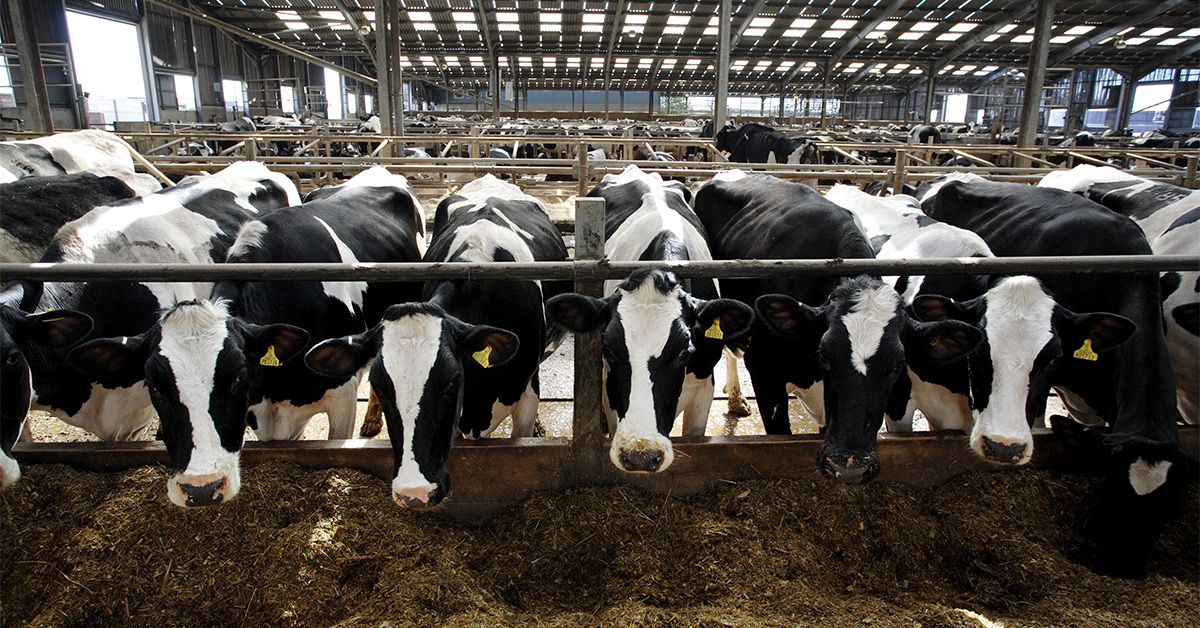Health
New Type of Bird Flu Detected in Us Dairy Cows. Is It Safe To Consume Milk, Beef?

The Emerging Threat of H5N1 Bird Flu: What You Need to Know
The Discovery of a New Bird Flu Strain in Dairy Cows
A new strain of the H5N1 bird flu virus has been detected in the milk of dairy cows in the United States, raising alarms about the rapid mutation of the virus. The U.S. Department of Agriculture (USDA) identified this new variant, known as D1.1, in two counties in Nevada. This is the first time this specific strain has been found in cattle. The discovery has sparked concern among experts about how the virus is adapting and spreading beyond its typical hosts, such as poultry and wild waterfowl.
The D1.1 variant is not the only strain causing worry. Another version of the H5N1 virus, B3.13, has been linked to infections in 950 cattle herds across 16 states. This strain has primarily been associated with birds and has already led to a significant nationwide egg shortage due to the mass culling of infected birds. The spread of these variants highlights the virus’s ability to evolve and infect multiple species, including mammals.
The Safety of the U.S. Food Supply
Despite the discovery of bird flu in dairy cows, government officials and experts assure the public that the nation’s food supply remains safe. The rigorous inspection of cattle herds and the pasteurization of milk products are key factors in mitigating the risk of contamination. Pasteurization, a heat treatment process, has been proven to kill the bird flu virus, ensuring that pasteurized dairy products like milk, yogurt, and cheese are safe for consumption.
However, there are concerns about unpasteurized milk and dairy products, which could potentially harbor the virus. Experts strongly advise against consuming raw, unpasteurized milk to minimize any risk. Similarly, while the risk of bird flu transmission through beef is considered low, officials recommend following standard food safety guidelines, such as thoroughly cooking meat and avoiding raw or undercooked beef.
The Risk of Bird Flu Transmission to Humans
The Centers for Disease Control and Prevention (CDC) has reported 67 human cases of bird flu in the U.S. during the current outbreak. Most of these cases involved individuals who worked closely with infected animals, such as farmers and veterinarians. While the majority of human infections have been mild, bird flu is a serious public health concern. Globally, about half of the 950 human cases reported in the past two years have resulted in death. In the U.S., a Louisiana man died from the D1.1 variant earlier this year, marking the first fatality linked to the current outbreak.
Experts agree that the current public health risk is low, as the H5N1 virus has not yet developed the ability to easily infect humans or spread between people. However, some researchers caution that the risk of transmission from birds to humans, and potentially from cows to humans, should not be underestimated. The mutation of the virus and its ability to spread across species have heightened concerns about the potential for future outbreaks.
The Spread of Bird Flu and Its Impact on Poultry and Wildlife
Since January 2022, over 1,500 outbreaks of bird flu have been reported in 634 counties across the U.S., affecting both poultry and wild birds. These outbreaks have led to the culling of more than 145 million birds, exacerbating the egg shortage and driving up prices. While eggs are safe to eat if stored and cooked properly, the CDC recommends cooking them to an internal temperature of 165 degrees to ensure the virus is inactivated.
The spread of bird flu has also raised questions about its potential impact on other livestock and the food supply chain. For now, officials emphasize that the rigorous inspection processes and safety protocols in place are effective in preventing the spread of the virus through food products. However, the ongoing mutation of the virus and its ability to infect mammals like cows have prompted calls for increased vigilance and research.
Expert Opinions and the Need for Continued Monitoring
While government officials and experts agree that the risk of bird flu transmission to humans remains low, there is no consensus on whether the situation is fully under control. Infectious disease experts like William Schaffner of Vanderbilt University note that the virus has not yet developed the genetic capability for easy human-to-human transmission. However, researchers like Abraar Karan of Stanford University and Seema Lakdawala of Emory University warn that the risk of spillover from animals to humans is high and warrants close monitoring.
As the virus continues to evolve, experts emphasize the importance of staying informed and taking precautions. For those at higher risk, such as farmers and animal handlers, following safety guidelines is crucial. For the general public, the CDC recommends standard hygiene practices, such as washing hands thoroughly and cooking food to appropriate temperatures. While the situation is concerning, the combination of scientific research, public health measures, and individual vigilance offers the best defense against the spread of bird flu.
-

 Money3 days ago
Money3 days agoConsumer Financial Protection Bureau Adds Error Message To Home Page
-

 Australia20 hours ago
Australia20 hours agoTropical Cyclone Zelia intensifies to category 2 storm
-

 Asia21 hours ago
Asia21 hours agoWhat you need to know about 2024 YR4, the asteroid that could hit Earth in about eight years’ time
-

 Money2 days ago
Money2 days agoWinning Content Strategies For Wealth Managers
-

 Entertainment13 hours ago
Entertainment13 hours agoPrince Harry and Meghan Markle’s Best Moments and Photos From the 2025 Invictus Games
-

 Politics21 hours ago
Politics21 hours agoDozens of religious groups sue to stop Trump admin from arresting migrants in places of worship
-

 Australia7 hours ago
Australia7 hours agoTropical Cyclone Zelia intensifies to category five system off Pilbara coast
-

 Entertainment3 days ago
Entertainment3 days agoEvery Celebrity Who Attended the 2025 Super Bowl: A Guide to the A-Listers at the Big Game










